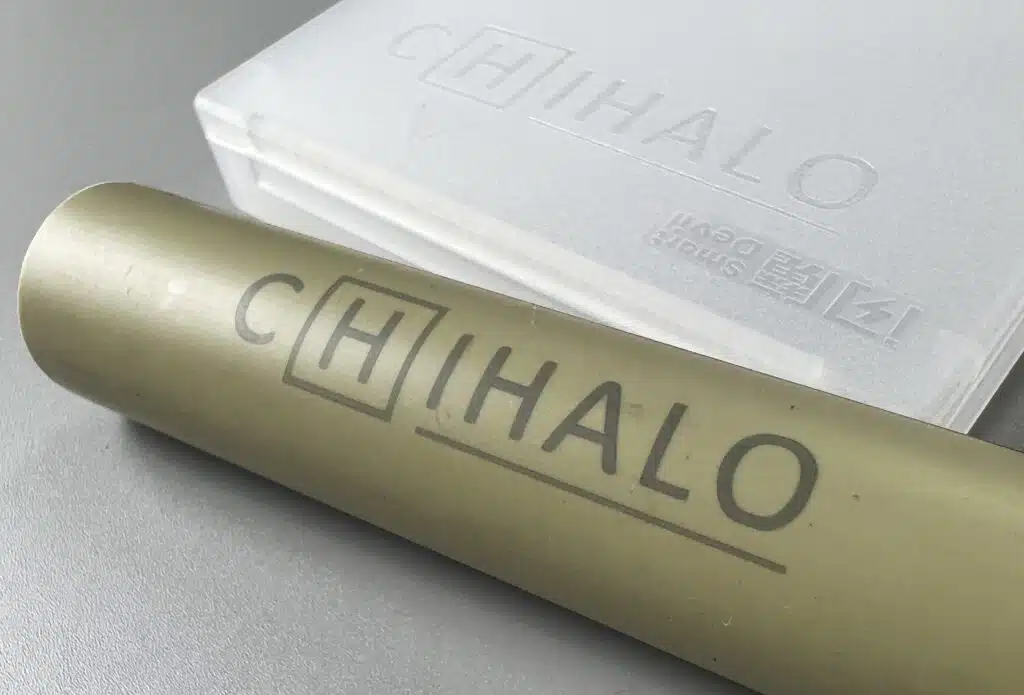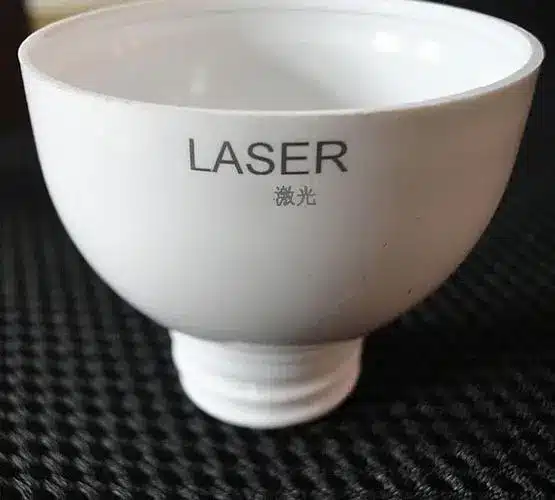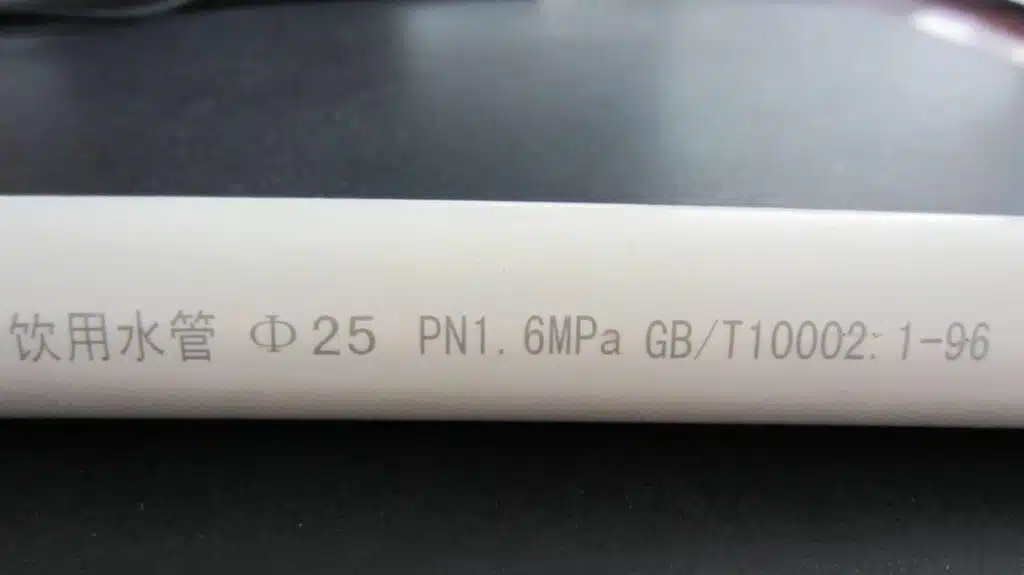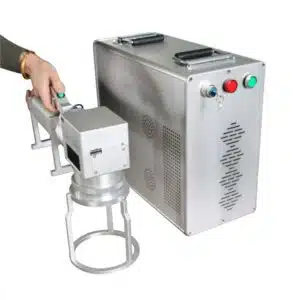Platic & Polymer Marking by Laser Marking Machines
Laser technology represents the pinnacle of precision engineering. When harnessed for plastic marking, it delivers unrivaled accuracy, ensuring every mark is etched with meticulous detail. Unlike traditional methods prone to inconsistencies, laser marking guarantees uniformity across diverse substrates, from rigid plastics to flexible polymers.
One of the most compelling attributes of laser marking on plastic is its versatility. Whether it’s intricate logos, alphanumeric codes, or barcodes, lasers offer the flexibility to accommodate diverse marking requirements. Moreover, advancements in laser technology enable customization with varying depths, colors, and textures, empowering manufacturers to unleash their creativity without compromise.
Plastics You Can Mark by Laser
Laser marking has emerged as a cornerstone technology in industrial applications, offering unmatched precision, versatility, and permanence. When it comes to marking plastics, the possibilities are vast, but understanding which plastics are conducive to laser marking is crucial for achieving optimal results. Let’s delve into the diverse spectrum of plastics that can be effectively marked using laser technology.

Polyvinyl Chloride (PVC)
PVC, a widely used thermoplastic, is valued for its durability, chemical resistance, and versatility in construction, signage, and healthcare applications. Laser marking on PVC enables precise engraving of product information, serial numbers, and safety warnings, enhancing product traceability and consumer safety. The non-contact nature of laser marking minimizes the risk of material damage or contamination, making it an ideal solution for marking PVC substrates.

Polycarbonate (PC)
Polycarbonate is a transparent thermoplastic known for its exceptional impact resistance, optical clarity, and flame retardancy. Laser marking on polycarbonate is prevalent in automotive, aerospace, and electronics industries for labeling switches, panels, and safety equipment. The ability of laser marking to produce high-resolution, permanent marks ensures readability and compliance with regulatory standards in demanding environments.

Polyethylene (PE) and Polypropylene (PP)
Polyethylene and polypropylene are ubiquitous in packaging, containers, and consumer products due to their low cost and chemical resistance. While these plastics pose challenges for laser marking due to their low surface energy, advancements in laser technology and additives enable effective marking on PE and PP substrates. Laser marking on PE and PP facilitates product branding, coding, and serialization, contributing to supply chain visibility and product authentication.

ABS (Acrylonitrile Butadiene Styrene)
ABS is a versatile thermoplastic renowned for its impact resistance, strength, and machinability. Laser marking on ABS is widely employed in automotive, electronics, and consumer goods industries for part identification, serial numbering, and compliance labeling. The precise and permanent nature of laser markings ensures traceability and enhances product authenticity in a range of applications.

Acrylic (PMMA)
Acrylic, also known as polymethyl methacrylate, is a transparent thermoplastic prized for its optical clarity and weather resistance. Laser marking on acrylic yields high-contrast, legible markings suitable for signage, displays, and decorative applications. Whether it’s branding logos, product labels, or artistic designs, laser marking adds a touch of sophistication to acrylic surfaces while ensuring durability and longevity.
WHAT DO YOU WANNA MARK?
Contact us to get the latest model and price!
How does Laser Work on Plastics?
Laser technology has become synonymous with precision, efficiency, and innovation across various industries. When it comes to marking plastics, understanding how lasers interact with these materials is key to unlocking their full potential.
Absorption of Laser Energy
When a laser beam interacts with a plastic surface, the material absorbs the energy from the photons in the beam. The absorption of laser energy causes localized heating of the plastic, leading to thermal decomposition or vaporization of the material.
Material Ablation
As the plastic absorbs laser energy, it undergoes physical changes, such as melting, vaporization, or chemical modification. This process, known as material ablation, results in the removal of material from the surface, leaving behind a permanent mark or engraving.
Selective Heating
Laser marking on plastics relies on selective heating of the material, where the laser beam is absorbed more strongly by certain components of the plastic, such as pigments or additives. This selective absorption allows for precise control over the marking process, enabling high-contrast, high-resolution marks with minimal damage to the surrounding material.
Factors Influencing Laser Marking on Plastics
Surface Preparation
Proper surface preparation, including cleaning, pre-treatment, or coating, can enhance the adhesion of laser marks and improve overall marking quality. Surface contaminants or irregularities can interfere with laser absorption and lead to inconsistent marking results.
Material Composition
The composition of the plastic, including its chemical makeup, additives, and pigments, plays a significant role in determining its response to laser marking. Plastics with higher absorption coefficients and lower thermal conductivity are generally more conducive to laser marking.
Laser Parameters
Adjusting laser parameters such as power, wavelength, pulse duration, and repetition rate is critical for achieving optimal marking results. These parameters determine the intensity and duration of laser exposure, affecting factors such as mark depth, clarity, and contrast.
Benefits of Laser Marking on Plastics
1. Precision:
Laser marking offers unmatched precision, allowing for intricate designs and small font sizes to be accurately reproduced on plastic surfaces.
2. Durability:
Laser marks are highly durable and resistant to fading, abrasion, and chemical exposure, ensuring long-lasting visibility and readability.
3. Versatility:
Laser marking can accommodate a wide range of marking requirements, including alphanumeric codes, serial numbers, logos, and graphics, making it suitable for diverse applications across industries.
Popular FAQ About Laser Marking on Plastics
Can laser marking machines be used for marking serialized codes or barcodes on plastics?
Yes, laser marking machines are commonly used for marking serialized codes, barcodes, QR codes, and other identification symbols on plastic components for traceability and inventory management purposes.
Can laser marking machines produce color markings on plastics?
Yes, certain laser marking techniques can produce color markings on plastics by inducing chemical or physical changes in the material’s surface. However, the range of colors achievable may be limited compared to other methods.
Can laser marking machines handle different shapes and sizes of plastic parts?
Yes, laser marking machines are highly versatile and can accommodate various shapes and sizes of plastic parts. They can be integrated into automated production lines for seamless marking of complex geometries.
What factors should be considered when choosing a laser marking machine for plastics?
Factors to consider include laser wavelength, power output, marking speed, focal length, software capabilities, cooling system, and compatibility with different plastic materials.
Is laser marking permanent on plastics?
Yes, laser marking creates permanent marks on plastics by altering the surface without affecting the material’s integrity. The marks are resistant to fading, abrasion, and environmental factors.
What types of plastics can be laser marked
Laser marking is suitable for a wide range of plastics including ABS, acrylic, polycarbonate, polyethylene, polypropylene, and more. However, the effectiveness may vary depending on the material composition and color.
Ready to Work Together?
Your email information will be kept strictly confidential, and our lawyers will ensure that your private information is absolutely safe!
If you need help finding the right industrial laser solution for you, we’re here to help!
Please tell us what kind of help you need, we will contact you immediately to provide you with the information you need to help you choose the most suitable solution for you!
Contact us today to start adopting better laser equipment to maximize your benefits and reduce your risks!


